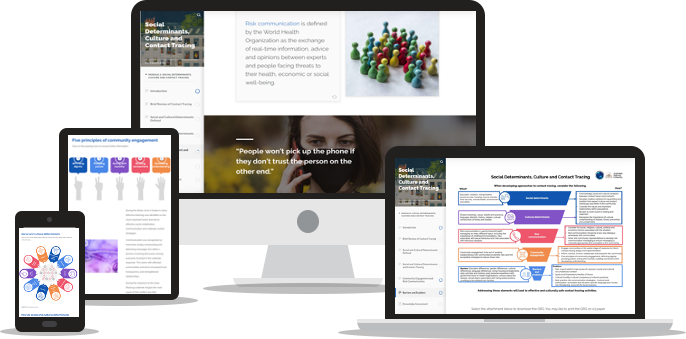eLearning Design
eLearning Design
eLearning Design
What is eLearning Design?
eLearning design is the process of designing and developing online learning programs.
First, a Learning Needs Analysis (LNA) is completed to identify the learning need. If eLearning forms part of a suitable solution, a storyboard (essentially a ‘blueprint’) is created to map out the program. Once the design has been approved, the eLearning Designer begins to build the program in the appropriate authoring tool. The program is then piloted, feedback is actioned, and the final product is ready to implement.
Who Designs eLearning?
eLearning professionals may be referred to as any of the following titles:
- eLearning Designer
- Learning Designer
- Instructional Designer
- Learning Experience Designers
- eLearning Advisor
- Learning Instructional Design and Experience Consultant
- Instructional Designer – eLearning
- Digital Learning Designer
- Training Specialist eLearning
- Online Learning Advisor
- Digital Content Developer
These job titles largely come down to personal preference, however, some will more closely reflect the specific requirements of a role. For example, we at IDA refer to ourselves as Instructional Designers, as we are skilled in developing a wide range of learning experiences, not just eLearning.
Why eLearning?
With today’s employees continuously under the pump, eLearning is a fitting solution that works with modern learners’ busy lives.
The benefits of online learning are obvious – being able to reach participants, regardless of time or place, can significantly reduce costs. Such benefits make it an attractive delivery method for both organisations and learners.
How Much Does eLearning Cost?
Online learning or eLearning programs vary in cost, development time, and level of complexity.
The cost of an eLearning course is influenced by many factors including:
- Amount and quality of source material
- Level of interactivity
- How many rounds of edits
- Length
- Design concepts
- Inclusions such as:
- Bespoke graphics
- Training videos
- Interactive elements
As a starting point, we offer standard inclusions that encompass a wide range of interactive elements, multimedia, visual features, and quiz types.
We also offer optional inclusions to take eLearning programs to the next level.
On a tight budget? We can produce eLearning swiftly and economically using our rapid eLearning development approach, suitable for projects under time pressures, or with a limited budget.
Our accessible eLearning programs support Web Content Accessibility Guidelines (WCAG) 2.0, making them fully accessible to screen reader users and keyboard-only users.
Select the button below to see our price guides.
Effective eLearning Design
eLearning authoring tools are becoming increasingly user-friendly. However, this does not by any means suggest you’re safe to leave the design and build of your eLearning up to the average Joe; the text-heavy, lifeless online courses that resemble a ‘next, next, next’ slide deck are evidence of that.
So what does effective eLearning design look like?
Effective eLearning design:
- Chunks learning into bite-sized pieces
- Uses tools that are compatible with desktop, tablet, and mobile devices
- Incorporates videos, infographics, and multimedia
- Immerses the participant in an interactive learning experience
- Motivates participants to implement new insight on-the-job, supporting learning transfer
- Strives for continuous improvement using appropriate program evaluation strategies
Click the articles below to learn more about eLearning design:
Want to learn how to design effective and engaging programs, with a toolkit to set you up for success? Start an Instructional Design Course today!
Online Learning
Online Learning
Types of Online Learning Solutions
We develop a variety of online learning solutions – eLearning is just one of those!
eLearning and mLearning
Your ‘typical’ online learning program. We develop programs that contain interactive elements and are responsive to mobile devices.
The structure of eLearning programs can be linear, non-linear, or contain optional content and activities for ‘deeper dives’.
eLearning and mLearning are efficient and easily scalable for large numbers of participants. This alone has the potential to significantly reduce implementation costs.
eLearning is flexible in both time and place, making it appropriate for participants located in different time zones, or those wanting to complete the program at their own pace or in non-traditional work hours. It also eliminates challenges such as participants in remote or geographically dispersed locations, or where operational constraints exist (e.g. limited staff available to ‘backfill’).
Virtual Facilitator-led Learning
These programs are delivered virtually, at a scheduled time, by a facilitator. Virtual facilitator-led learning generally includes discussions, collaborative group work, storytelling, and sharing of experiences, thoughts, and ideas.
Visual and informative PowerPoint slides accompany these programs, which are used to deliver content and explain concepts in an illustrative way.
We recommend limiting the group size to ensure that each participant has the opportunity to interact and collaborate – discussing concepts, sharing ideas, and asking questions.
Virtual Coaching Sessions
Similar to virtual facilitator-led learning, virtual coaching sessions are delivered by a facilitator. Instead of delivering to a group of participants, these are usually personalised learning experiences for an individual.
Virtual coaching sessions typically build on the knowledge and skills developed in a formal learning program. They provide opportunities for participants to receive feedback, share experiences, refine their skills, deepen their understanding of concepts, or extend their learning.
On-demand Learning
‘Just in time’ learning can be completed at any time, anywhere. Learning is chunked and delivered in bite-sized pieces, allowing learners to access it on an as-need basis.
Microlearning empowers employees to take charge of their own learning and problem-solve in the moment. With information at their fingertips, employees can discover answers to their questions within minutes.
Is Online Learning a Suitable Solution for Your Learning Needs?
Learning may be delivered and accessed in a variety of ways. The delivery method/s selected should respond to identified learning need/s and other organisational factors. These may include where participants are currently located, what the ‘ways of working’ look like for participants (eg. operating model), and the availability of training facilities.
Online learning is generally not a ‘silver bullet’ solution. A blend of learning solutions – such as digital, on-the-job, self-paced, embedding activities, and SME coaching will likely offer the most effective, ‘just in time’, ‘bite-sized’, flexible learning approach.
Our eLearning Solutions
Our eLearning Solutions
At Instructional Design Australia, we create visually engaging, interactive, and responsive eLearning programs.
Our typical online learning programs come with standard inclusions that encompass a wide range of interactive elements, multimedia, visual features, and quiz types.
We also offer optional inclusions to take eLearning programs to the next level.
Need a program developed fast? We can produce eLearning swiftly and economically using our rapid eLearning development approach, suitable for projects under time pressures, or with a limited budget.
Our accessible eLearning programs support Web Content Accessibility Guidelines (WCAG) 2.0, making them fully accessible to screen reader users and keyboard-only users.
View eLearning Examples
See samples of some of our recent eLearning projects.
Blog
Blog
eLearning Development Articles and Advice
Contact Us
Contact Us
Contact Details
Office
E: info@discoverlearning.com.au
Ph: 1300 528 736
Michael Peart
E: michael@discoverlearning.com.au
Ph: 0434 075 231
Bianca Schimizzi
E: bianca@discoverlearning.com.au
Ph: 0416 013 623
Online Enquiry

